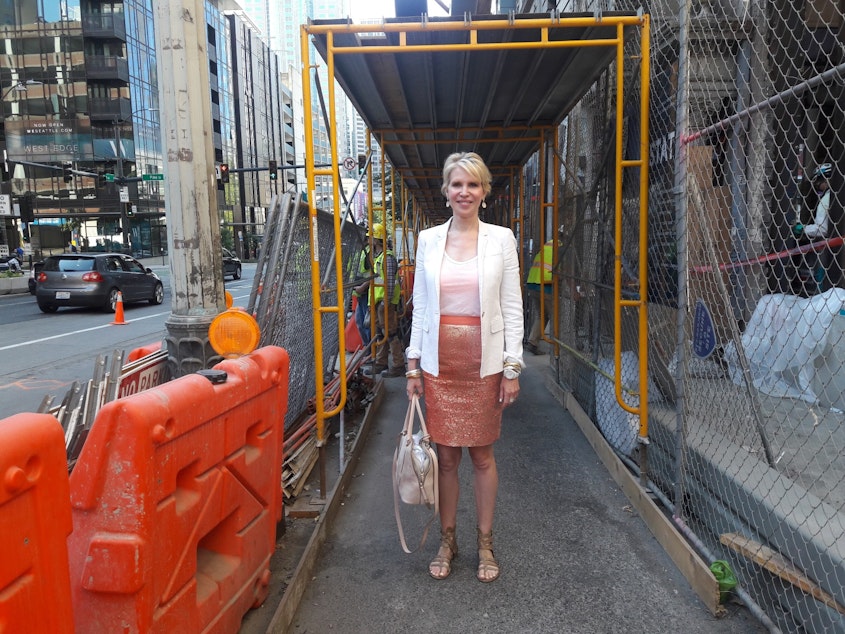Amazon's HQ2 move could be a boon for local startups

Amazon says its decision on where to locate its second headquarters will come by the end of the year. In Seattle, people are thinking about the consequences of that move now.
It could mean fewer new jobs coming to the city. But there’s also a bright side: Some executives at Seattle’s other tech companies are rubbing their hands with anticipation.
Bobby Figueroa is developing a startup company in Pioneer Square called Gradient. His company uses machine learning to help companies advertise online.
Gradient is ready to grow, but right now, it can’t find enough people. A lot of the people they want to hire already have jobs at big tech companies like Microsoft and Google and Amazon. And those employees are staying put.
“The success that these large companies have had – has also made it hard for individuals inside to leave,” said Figueroa.
Gradient investor Heather Redman expects a change is coming. She believes that Amazon’s HQ2 announcement is going to shake loose a lot of tech workers in Seattle. So her venture capital firm, Flying Fish Partners, is leading a round of investment that will pump millions of dollars into Gradient.
“What we’re hopeful for, as the silver lining of what might happen with HQ2, is that there will be some people who think it’s an opportune time to leave Amazon,” Redman said.
Or it might be an opportune time to leave Microsoft and launch your own startup, she added.
Amazon says it won’t force anybody to move to HQ2. But Redman is skeptical.
“Even though the statement from Amazon corporate is no one’s going to be required to move, it may be awkward not to,” she said. Example: If your boss moves, but you stay behind, you may have fewer opportunities to advance.
Redman is thinking about the period that will come after Amazon HQ2 as an opportunity. While it would mean less growth for Amazon here, Redman thinks it will be great for startups.
“One of the best times for us to build great companies is when there isn’t a great cushy job someplace else for people to stay with,” she said. “And so it encourages people to take that risk.”
Redman’s thinking echoes another company’s strategy: Amazon’s hiring spree during the Great Recession.
Dave Niekerk was in charge of hiring at the time. KUOW spoke with him last year, for the podcast Primed.
“We knew this was a unique period in time, and we needed to hire as many engineers as we possibly could,” Niekerk said. “And I think at some time, we actually ran out of laptops, we were hiring so many people that our supply chain had to catch up with it.”
So during the next slow down, Seattle should think about growing the next Amazon, Redman said.
Ben Hallen, who teaches entrepreneurship at the University of Washington Foster Business School, agreed.
But Amazon could also go to great lengths to hold onto its talent, Hallen said. The company will likely let people work remotely. And its stock price still inspires loyalty.
Amazon has already lost at least one employee to the next wave of startups. Bobby Figueroa, the founder of Gradient, was an Amazon employee until the beginning of this year.




